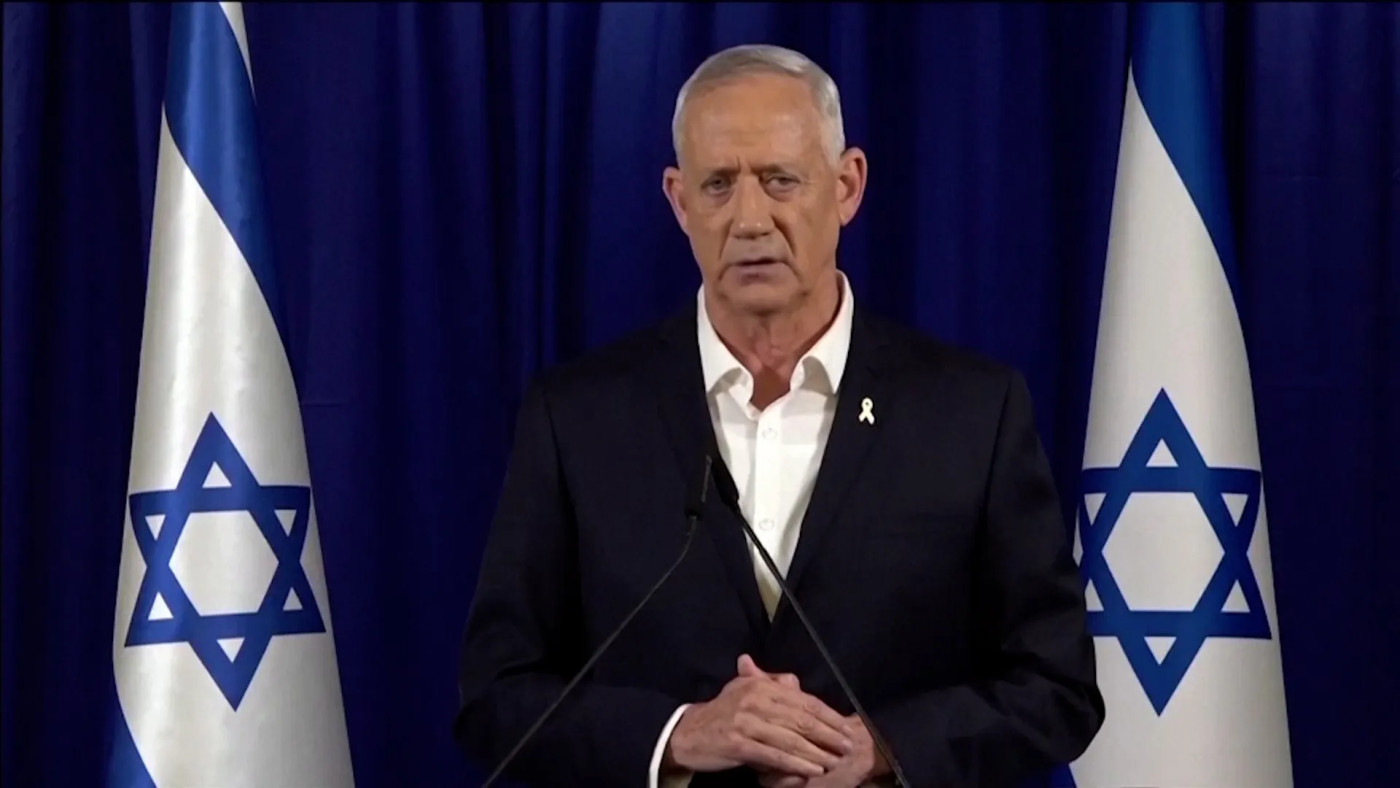Israel Is Losing the Diplomatic War
Israeli leaders have been left rattled by a difficult week of diplomatic developments related to their ongoing war against Hamas and other Palestinian militant groups in the Gaza Strip.
The week began with the news that International Criminal Court (ICC) prosecutors are seeking arrest warrants for Prime Minister Benjamin Netanyahu and Defense Minister Yoav Gallant over the conduct of the seven-month-old conflict, a development met with outrage in Israel and among its backers in the U.S.
Then on Wednesday, Ireland, Spain and Norway announced their intention to officially recognize the State of Palestine, in what represents a rebuke of deepening Israeli opposition to the two-state solution—the end goal of the stalled Arab-Israeli peace process—set out by the 1993 Oslo Accords.
Slovenia and Malta are reportedly planning to follow suit in the coming weeks. Almost as many United Nations member states now recognize Palestine as recognize Israel, though powerful Western nations including the U.S., the U.K., France and Germany are among those never to have recognized Palestine.
Of the five permanent members of the UN Security Council, Russia and China have both recognized Palestine.
The Israeli reaction to the latest developments was furious. The foreign ministry recalled its representatives in Ireland, Spain and Norway, while summoning those nations' ambassadors in Israel "for a severe reprimand conversation."
In a statement, Foreign Minister Israel Katz said: "History will remember that Spain, Norway and Ireland chose to reward Hamas murderers and rapists, who raped girls and burned babies, with a gold medal."
President Joe Biden has long supported the two-state solution, though he and other U.S. leaders have been critical of any unilateral recognition of the state of Palestine. The traditional U.S. stance has been that Palestinian recognition should only come as part of a broader peace deal with Israel.
Asked whether the U.S. tried to stymie the new recognition announcements—or is hoping to prevent other nations from doing the same—a State Department spokesperson told Newsweek it would not comment "on private diplomat discussions."
The spokesperson directed Newsweek to a statement issued by National Security Council spokesperson Adrienne Watson this week, which read: "The president is a strong supporter of a two-state solution and has been throughout his career. He believes a Palestinian state should be realized through direct negotiations between the parties, not through unilateral recognition."
But months of tensions in bilateral relations have left their mark.
The public deterioration of ties between Netanyahu and Biden—a relationship that has generally been functional, but never close—has been striking, as has the implementation of U.S. sanctions on individuals and groups linked to Israel's settlements in the occupied West Bank considered illegal under international law.
Democratic voters have been making plain their discomfort with Biden's "ironclad" backing for Israel's operation in Gaza, while nationwide pro-Palestinian student protests have shown the deep discontent among certain sections of America's youth.
The Democratic political establishment—many of whom have long been critical of Netanyahu and his increasingly right-wing political coalitions—are also making their frustration clear.
House Speaker Emerita Nancy Pelosi told Newsweek at the Munich Security Conference in February that she had been growing "less and less" in favor of Netanyahu, quickly adding: "Well, you can't get less than nothing."
Axios reported on Thursday that there is now fierce Democratic pushback against plans to invite Netanyahu to address a joint session of Congress.
Even former President Donald Trump has weighed in, telling conservative radio host Hugh Hewitt in April that Israel is "absolutely losing the PR war" and calling for a quick end to the war in Gaza. "They have to get it done. Get it over with and get it over with fast because we have to—you have to get back to normalcy and peace."
Israel "is on the back foot, diplomatically; there's no question about that," Hugh Lovatt, a senior policy fellow at the European Council on Foreign Relations (ECFR), told Newsweek. "We went from this moment of unprecedented support for Israel to the current moment of unprecedented pressure on Israel, and creeping isolation. This probably shows just how much the Israeli government has mishandled the situation.
"I don't think we should over-exaggerate it, but nonetheless I think there is something that is more fundamentally changing in ways that I haven't seen it for quite some time.
"Despite all this, Israel retains strong support where it matters," Lovatt continued. "It retains extremely strong support in the United States, and it retains strong support in some European capitals.
"One could argue that most of the world could turn against Israel, yet so long as the U.S. and a few other critical Western allies are there to protect it in international forum, how much of that really matters?"
Diplomatic pressure on Israel may grow in the coming weeks, with Slovenia planning to recognize the State of Palestine once lawmakers given final approval in mid-June. Malta is also planning to do so "when such recognition can make a positive contribution, and when the circumstances are right," the country's foreign ministry said Wednesday.
French Foreign Minister Stephane Sejourne, meanwhile, said that any recognition by Paris cannot be rushed. "This is not just a symbolic issue or a question of political positioning, but a diplomatic tool in the service of the solution of two states living side by side in peace and security," he said in a statement.
A German foreign ministry spokesperson said that an "independent Palestinian state remains a firm goal of German foreign policy," but that it must be born out of the larger dialogue process.
Belgium—the current holder of the rotating European Council presidency—will recognize a Palestinian state "at the right moment when it has an immediate impact," Prime Minister Alexander De Croo said.
The Palestinian mission to the UN, meanwhile, is slowly making progress. Earlier this month, the UN General Assembly voted overwhelmingly in favor of granting new privileges to the Palestinian Authority in its current capacity as a non-member observer state. Only nine nations—including Israel and the U.S.—voted against.
Even U.S. support is not limitless, as shown by the growing number of Americans expressing opposition to Israeli conduct in national polls. Patience for Netanyahu is thinning particularly fast, and the White House has been working closely with those most likely to succeed him, including opposition leader Benny Gantz.
"The U.S. may see Netanyahu privately as the problem, as the obstacle to U.S. objectives, but it is not doing much to address that problem," Lovatt said. "All the things that we were warning about from October onwards—all the limitations of what one can get from Israel, of the dangers of Israeli strategy or the shortcomings of Israeli strategy which were so apparent to so many of us early on—seem to only now be becoming apparent to U.S. officials. Or at least, the frustration is now finally spilling forth."
Disclaimer: The copyright of this article belongs to the original author. Reposting this article is solely for the purpose of information dissemination and does not constitute any investment advice. If there is any infringement, please contact us immediately. We will make corrections or deletions as necessary. Thank you.



